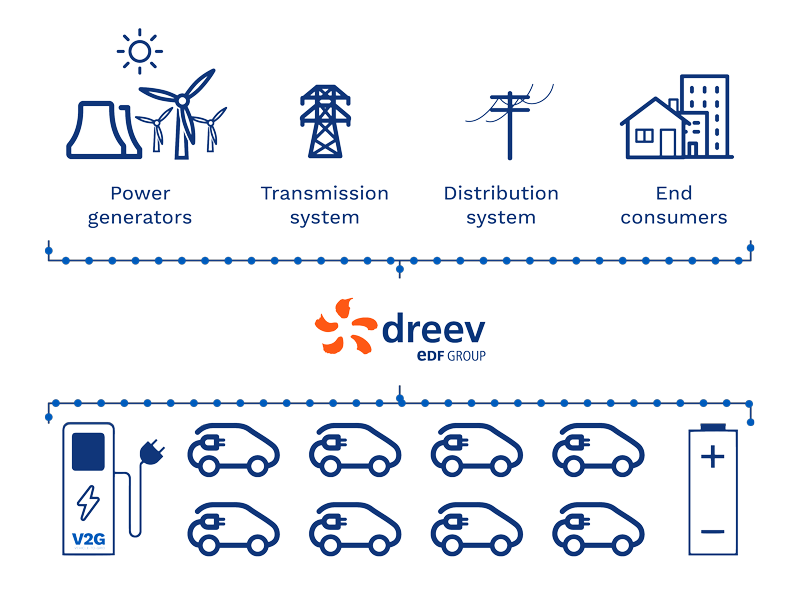Power utilities are trialling vehicle-to-grid tech as EV sales ramp up

Pic: Vertigo3d / E+ via Getty Images
Today there are almost 6 million EVs on the world’s roads, up from 4 million in late 2018 — despite a weakening global economy.
A report from GlobalData predicts that large-scale commercial production of EVs by the big car makers is unlikely to take off until 2025.
And yet growing economies of scale, as battery factories start scaling up production worldwide, means that batteries — the most expensive part of an EV — are getting cheaper and cheaper.
This fall in prices has proved useful to the battery energy storage market and hastened the deployment of energy storage projects globally, especially things like vehicle-to-grid tech.
Vehicle to Grid tech is taking off
Sneha Susan Elias, senior analyst at GlobalData, says power utilities are collaborating with EV manufacturers to boost their offerings in areas like EV charging and vehicle-to-grid (V2G) services.
READ: Integrating battery storage and EVs into the grid could save billions: report
V2G systems enable plug-in EVs, particularly their batteries, to play a major role in balancing energy demand and supply and leads to two-way power flow between an EV and the electricity grid.
Power utilities globally are involved in V2G pilot or demonstration projects, Elias says.
“Recently, French utility giant EDF introduced DREEV, its new subsidiary which is a joint venture between EDF Pulse Croissance and Nuvve, a San Diego based global leader in V2G solutions, for the development of V2G technology,” Elias says.

Recently, Engie SA, a major French utility company, was involved in the acquisition of ChargePoint Services, a provider of integrated EV charging solutions, from Gresham House.
The acquisition will boost Engie’s existing EV capabilities and will set it up as an EV infrastructure company in the UK.
Global energy major Shell recently acquired US-based EV charging firm Greenlots, a leader in providing EV charging and energy management software and solutions in the US.
NOW READ: Carmakers are still betting big on China’s slowing EV market
Related Topics
UNLOCK INSIGHTS
Discover the untold stories of emerging ASX stocks.
Daily news and expert analysis, it's free to subscribe.
By proceeding, you confirm you understand that we handle personal information in accordance with our Privacy Policy.







